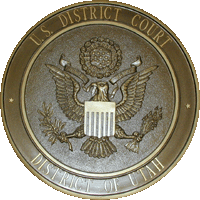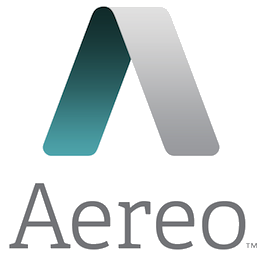iCraveTV was a Canadian website, which operated from 1999 to 2000. The site offered streaming Internet broadcasts of the conventional television stations, both Canadian and American, that were available as over-the-air signals in Toronto.

A&M Records, Inc. v. Napster, Inc., 239 F.3d 1004 was a landmark intellectual property case in which the United States Court of Appeals for the Ninth Circuit affirmed the a district court ruling that the defendant, peer-to-peer file sharing service Napster, could be held liable for contributory infringement and vicarious infringement of copyright. This was the first major case to address the application of copyright laws to peer-to-peer file sharing.

In re Aimster Copyright Litigation, 334 F.3d 643, was a case in which the United States Court of Appeals for the Seventh Circuit addressed copyright infringement claims brought against Aimster, concluding that a preliminary injunction against the file-sharing service was appropriate because the copyright owners were likely to prevail on their claims of contributory infringement, and that the services could have non-infringing users was insufficient reason to reverse the district court's decision. The appellate court also noted that the defendant could have limited the quantity of the infringements if it had eliminated an encryption system feature, and if it had monitored the use of its systems. This made it so that the defense did not fall within the safe harbor of 17 U.S.C. § 512(i). and could not be used as an excuse to not know about the infringement. In addition, the court decided that the harm done to the plaintiff was irreparable and outweighed any harm to the defendant created by the injunction.
The multinational technology corporation Apple Inc. has been a participant in various legal proceedings and claims since it began operation and, like its competitors and peers, engages in litigation in its normal course of business for a variety of reasons. In particular, Apple is known for and promotes itself as actively and aggressively enforcing its intellectual property interests. From the 1980s to the present, Apple has been plaintiff or defendant in civil actions in the United States and other countries. Some of these actions have determined significant case law for the information technology industry and many have captured the attention of the public and media. Apple's litigation generally involves intellectual property disputes, but the company has also been a party in lawsuits that include antitrust claims, consumer actions, commercial unfair trade practice suits, defamation claims, and corporate espionage, among other matters.

isoHunt was an online torrent files index and repository, where visitors could browse, search, download or upload torrents of various digital content of mostly entertainment nature. The website was taken down in October 2013 as a result of a legal action from the MPAA; by the end of October 2013 however, two sites with content presumably mirrored from isohunt.com were reported in media. One of them – isohunt.to – became a de facto replacement of the original site. It is not associated in any way with the old staff or owners of the site, and is to be understood as a separate continuation.

Intellectual Reserve, Inc. v. Utah Lighthouse Ministry, Inc., 75 F. Supp. 2d 1290, was a United States district court decision on the subject of deep linking and contributory infringement of copyright.

Jacobsen v. Katzer was a lawsuit between Robert Jacobsen (plaintiff) and Matthew Katzer (defendant), filed March 13, 2006 in the United States District Court for the Northern District of California. The case addressed claims on copyright, patent invalidity, cybersquatting, and Digital Millennium Copyright Act issues arising from Jacobsen under an open source license developing control software for model trains.

The Digital Millennium Copyright Act (DMCA) is a 1998 United States copyright law that implements two 1996 treaties of the World Intellectual Property Organization (WIPO). It criminalizes production and dissemination of technology, devices, or services intended to circumvent measures that control access to copyrighted works. It also criminalizes the act of circumventing an access control, whether or not there is actual infringement of copyright itself. In addition, the DMCA heightens the penalties for copyright infringement on the Internet. Passed on October 12, 1998, by a unanimous vote in the United States Senate and signed into law by President Bill Clinton on October 28, 1998, the DMCA amended Title 17 of the United States Code to extend the reach of copyright, while limiting the liability of the providers of online services for copyright infringement by their users.

1-800 CONTACTS v. WhenU.com was a legal dispute beginning in 2002 over pop-up advertisements. It was brought by 1-800 Contacts, an online distributor of various brands of contact lenses against WhenU SaveNow, a maker of advertising software. The suit also named Vision Direct, one of WhenU advertising customers, as a co-defendant. 1-800 CONTACTS alleged that the advertisements provided by WhenU, which advertised competitors of 1-800 CONTACTS when people viewed the company's web site, were "inherently deceptive" and that one of the advertisements "misleads users into falsely believing the pop-up advertisements supplied by WhenU.com are in actuality advertisements authorized by and originating with the underlying Web site".

Arista Records LLC v. Lime Group LLC, 715 F. Supp. 2d 481, is a United States district court case in which the Southern District of New York held that Lime Group LLC, the defendant, induced copyright infringement with its peer-to-peer file sharing software, LimeWire. The court issued a permanent injunction to shut it down. The lawsuit is a part of a larger campaign against piracy by the Recording Industry Association of America (RIAA).

Flava Works, Inc v. Gunter, 689 F.3d 754, is a decision by the United States Seventh Circuit Court of Appeals, authored by Judge Richard Posner, which held that Marques Gunter, the sole proprietor of the site myVidster.com, a social bookmarking website that enables its users to share videos posted elsewhere online through embedded frames, was not liable for its users' sharing and embedding of copyrighted videos. The court of appeals reversed the decision of the United States District Court for the Northern District of Illinois, which had granted a preliminary injunction against myVidster, citing sufficient knowledge of infringement on Gunter's part, while denying safe harbor defense under the Digital Millennium Copyright Act (DMCA). The Court held that Gunter was not directly liable because the copyrighted content was not stored on myVidster's servers, and was not contributorily liable because there was no evidence that conduct by myVidster increased the amount of infringement.

Aereo was a technology company based in New York City that allowed subscribers to view live and time-shifted streams of over-the-air television on Internet-connected devices. The service opened to customers in March 2012, and was backed by Barry Diller's IAC.

Capitol Records, LLC v. ReDigi Inc., 934 F. Supp. 2d 640 , is a case from the United States District Court for the Southern District of New York concerning copyright infringement of digital music. In ReDigi, record label Capitol Records claimed copyright infringement against ReDigi, a service that allows resale of digital music tracks originally purchased from the iTunes Store. Capitol Records' motion for a preliminary injunction against ReDigi was denied, and oral arguments were given on October 5, 2012.

WPIX, Inc. v. ivi, Inc., was a copyright infringement case heard before the United States Court of Appeals for the Second Circuit. The appeals court affirmed the decision of the district court to grant an injunction for the plaintiffs, barring ivi, Inc. from broadcasting television programming over the Internet. This decision set a precedent that broadcast television material can be protected by copyright and cannot be re-transmitted on the Internet without permission.
Fox Broadcasting Co. v. Dish Network, LLC is a copyright case in which the United States District Court for the Central District of California, by granting partial summary judgment, denied most parts of the copyright claims presented by Fox Broadcasting Company (Fox) against Dish Network (Dish) for its service, a DVR-like device that allowed users to record programming that could be accessed later through any Internet-connected device. The service offered by Dish also allowed users to record any or all Fox's prime-time programs and to automatically skips commercials (AutoHop).

Columbia Pictures Industries, Inc. v. Fung 710 F.3d 1020 No. 10-55946, was a United States Court of Appeals for the Ninth Circuit case in which seven film studios including Columbia Pictures Industries, Inc., Disney and Twentieth Century Fox sued Gary Fung, the owner of isoHunt Web Technologies, Inc., for contributory infringement of their copyrighted works. The panel affirmed in part and vacated in part the decision of United States District Court for the Central District of California that the services and websites offered by isoHunt Web Technologies allowed third parties to download infringing copies of Columbia's works. Ultimately, Fung had "red flag knowledge" of the infringing activity on his systems, and therefore IsoHunt was held ineligible for the Digital Millennium Copyright Act § 512(c) safe harbor.
Rightscorp. Inc is a Los-Angeles based copyright enforcement company, which locates alleged copyright violators and collects money from legal damages as well as out of court settlements on behalf of the copyright holder(s). Rightscorp manages copyrights of videos, music, and video games.
American Broadcasting Cos., Inc. v. Aereo, Inc, 573 U.S. 431 (2014), was a United States Supreme Court case. The Court ruled that the service provided by Aereo, which allowed subscribers to view live and time-shifted streams of over-the-air television on Internet-connected devices, violated copyright laws.
Google has been involved in multiple lawsuits over issues such as privacy, advertising, intellectual property and various Google services such as Google Books and YouTube. The company's legal department expanded from one to nearly 100 lawyers in the first five years of business, and by 2014 had grown to around 400 lawyers. Google's Chief Legal Officer is Senior Vice President of Corporate Development David Drummond.

Locast was an American non-profit streaming television service that allowed users to view live streams of over-the-air television stations. The service was founded by attorney David Goodfriend under the banner of the Sports Fans Coalition.










